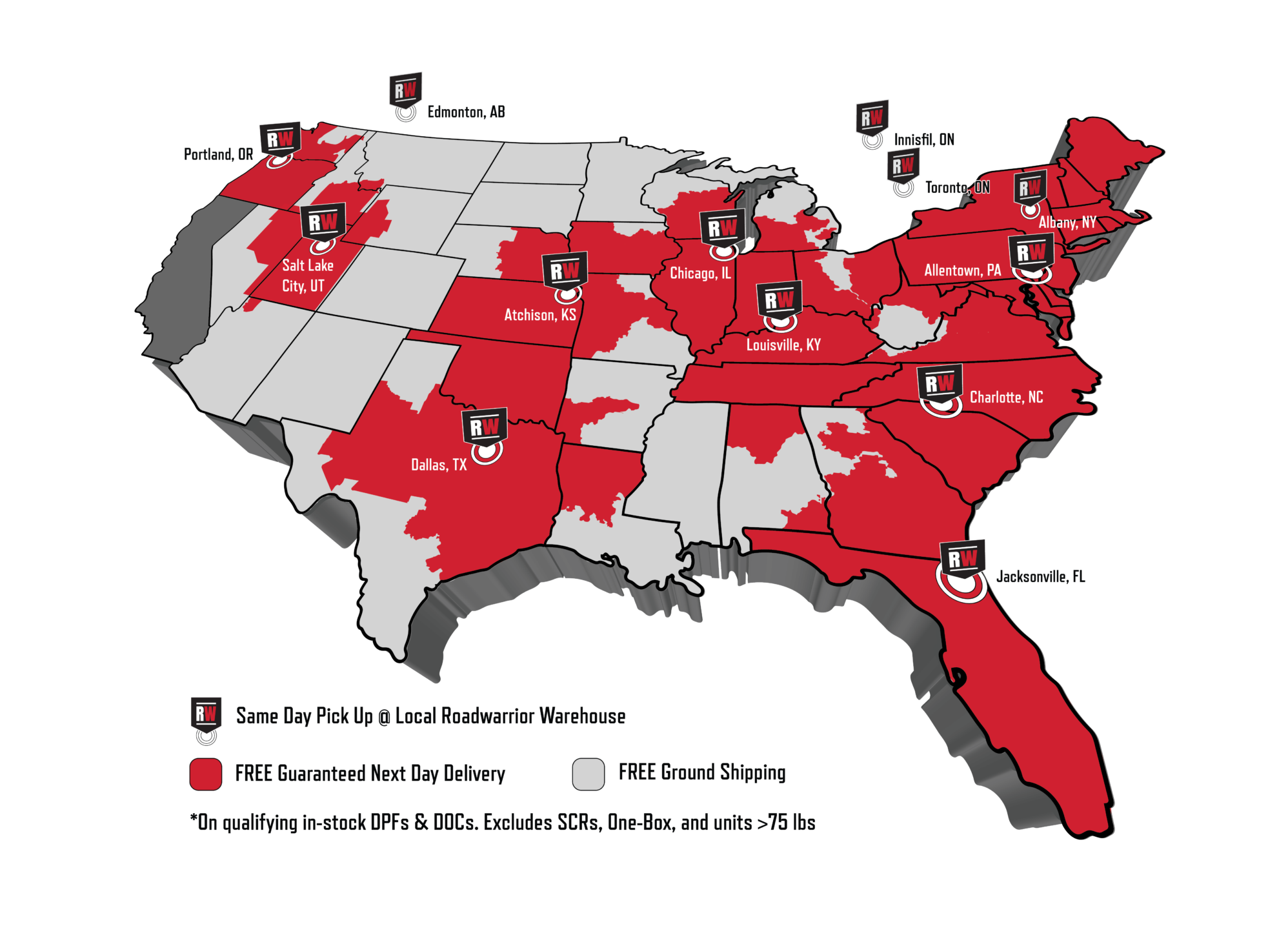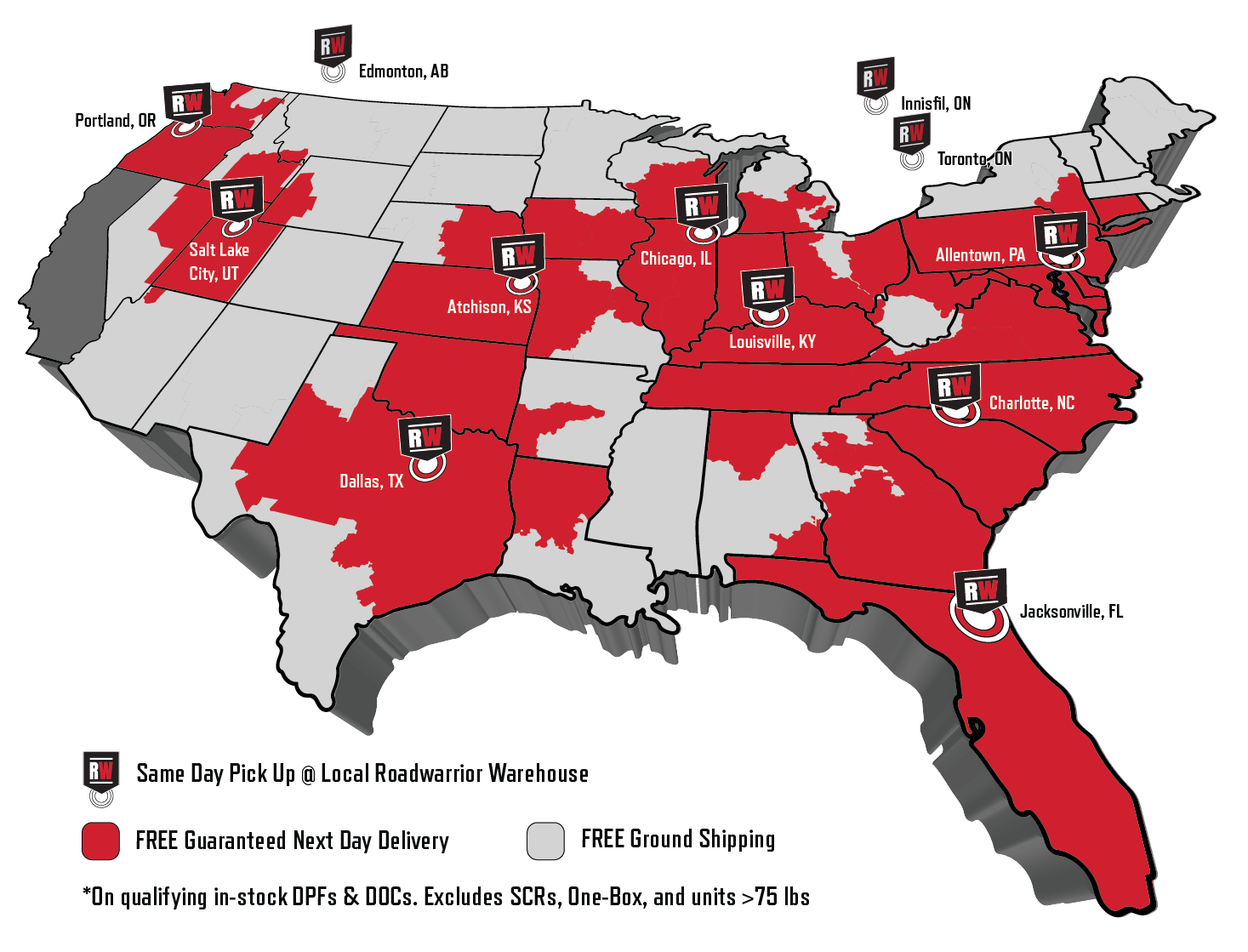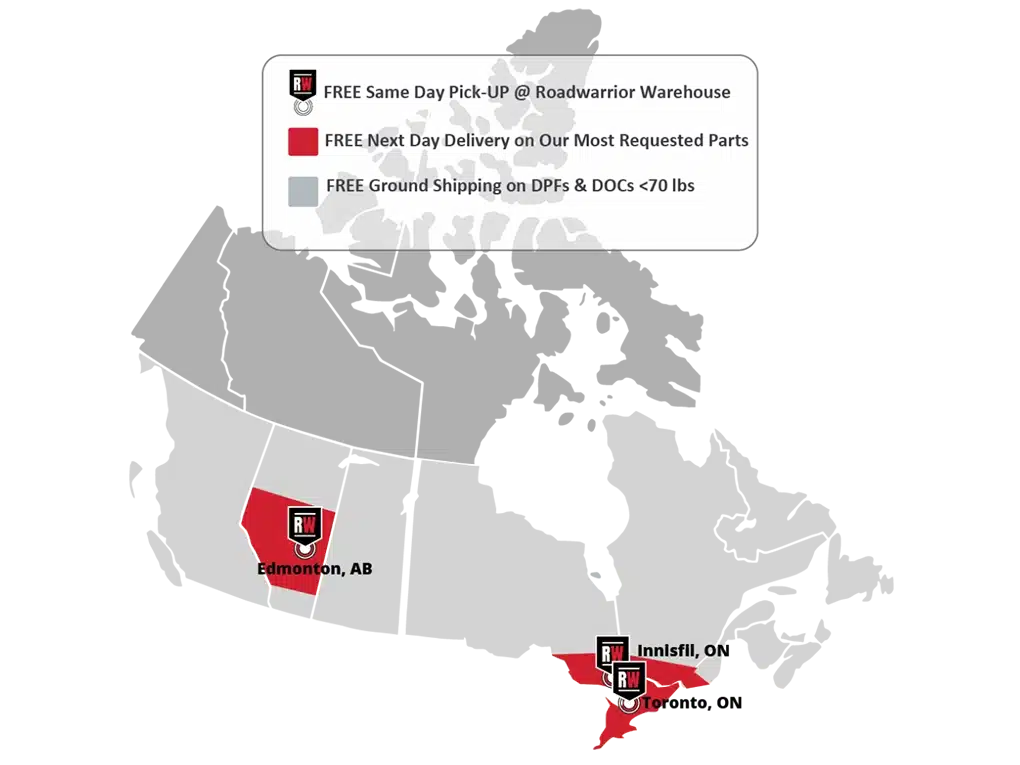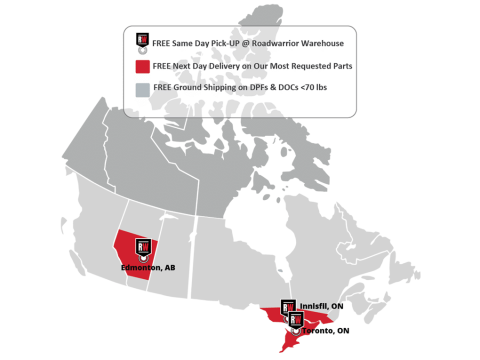Diagnostic equipment is like anything else: the more you know about the market and what’s on offer, the better your purchasing decisions will be. Commercial truck scan tools vary widely in everything from price to capabilities. The more you know about the differences, the easier it is to choose a tool that meets your needs. While specific models are regularly updated, these general features are always worth keeping in mind. You should also consider how your particular profile might affect your choice of scan tool. You can find out more about this in our companion blog Your Checklist for Choosing a New Scan Tool.
Will it Work in Your Truck?
Firstly, is the scan tool you’re thinking about buying meant for HD trucks? It can be tempting to try reading DTCs with an automotive scan tool, but though a high-end tool may work, it’s not a good idea! For one thing, many DTCs that are common in HD trucks are OEM-specific, and car scan tools aren’t designed to read them. This means that the scan tool may miss or misdiagnose errors, causing you to waste time and money doing the wrong repairs. On top of this, car scan tools often have different size connectors; trying to force the wrong type to fit could ruin your connector port and blow your diagnostic fuse.
Another basic but important factor when buying an HD scan tool, is whether it’s the right size for your truck. Different OEMs favour different connector ports. You should only buy a tool that fits with your truck or has an adapter that fits. Once you’ve confirmed that it can support 6, 9 and 16 pin connector types (or at least those included in your fleet), and that it can recognise fault codes from all the major OEMs, you should check which truck classes a scanner is suitable for. If you have a mixture of class 4–8 trucks, you should make sure your scan tool has been tested and approved for them all.
Can You Use DTC Scan Tools On Petrol and Diesel Trucks?
It’s important to check whether a DTC scan tool has been tested with diesel trucks, petrol trucks or both. While some tools can be used interchangeably, others can only be used reliably with one engine type. This isn’t just because the scanner needs to fit into your truck’s diagnostic port. Diesel and petrol engines also have different components and not all tools can correctly diagnose issues with both.

Which Tool is Right for Your Truck?
A good scan tool should meet a number of criteria beyond just reading DTCs. Firstly, it should be able to scan OEM-specific fault codes as well as generic ones. Secondly, it should be capable of reading active, pending, and permanent fault codes! Permanent fault codes are emissions-related DTCs that can’t be cleared without first fixing the problem. You can find out more about permanent, pending and active fault codes in our blog Truck Fault Codes and Scan Tools: Your Questions Answered. Another key consideration is whether you want a tool that can clear pending and active codes.
How Advanced is The Scan Tool?
High-end scan tools are capable of performing a number of more advanced functions! Before you invest in one, you should think about how much data you need it to provide. Do you just need to scan DTCs related to your engine and emissions system, or do you want it to do more? Some advanced HD truck scan tools can read errors with your ABS (anti-lock-braking system), drivetrain, transmission, braking system and more. The more systems in your truck report to the ECU, the more issues an advanced scan tool can pick up on!
Once you’ve scanned for fault codes, you may also want more information about them. Different scan tools provide different levels of data on issues they detect, ranging from just the code, to the name of the code, to detailed descriptions and repair advice. The more detail provided, the more expensive the tool is likely to be! There are DTC websites listing generic fault codes, and common codes from major OEMs, so you can look up your code once you know it. However, having this feature streamlines the process and in-built repair advice can be extremely beneficial, especially for owner-operators with truck repair experience.

Does it Store Data?
The storage capacity between different scan tools varies widely. Some just read and display fault codes once, while others can store and track historical DTCs for multiple vehicles. As well as storing truck fault codes, more advanced truck scan tools can also track performance data. This information can include average idle times, engine RPM, hard braking events, engine operating hours, fuel economy and more! This data lets fleet managers track performance averages and enables owner-operators to pre-plan convenient maintenance breaks. When it comes to commercial trucks, knowledge is power, and a good scan tool gives you the power to make smart decisions!
Is Your Scan Tool the Right Fit for Your Truck?
A scan tool should make your life easier, not harder, but this means different things for different people. A mechanic’s life is easier with a high-end scan tool like a diagnostic laptop that provides a detailed run-down of a truck’s issues. An advanced scan tool can help them pinpoint the exact root of the problem, saving their clients time and money. However, this may be too bulky, expensive and unnecessarily detailed for a trucker in mid-run! Many long-haul truckers prefer smaller, faster tools that just tell them what the issue is and how serious it is.
Is It Easy to Use?
One major distinction to watch out for is whether the tool you choose is plug-and-play or requires an elaborate set-up every time you use it on a new truck! Another is whether it has an easy-to-use interface that will speed up repairs and diagnosis rather than slow them down. The third is how big it is. Some advanced truck scan tools are large and bulky with a lot of cables, while other pocket-sized tools connect to your phone or laptop via Bluetooth. It’s important to choose an HD truck scan tool that suits your circumstances!

How Adaptable is the Scan Tool?
If you’re only planning to use your scan tool on one truck, then it doesn’t matter as much whether its database is regularly updated. However, if you plan to use it on a fleet, or for a changing stream of customers, it should be able to scan for issues with any new parts that are brought in. It’s also beneficial to be able to download updates and bug fixes! This gets us onto different payment plans for different scan tools. Some diagnostic equipment just involves a one-off payment, and this kind usually doesn’t have regular free updates. However, other scanners have a running subscription that allows you to access features like upgrades and repair manuals! These tools often cost more over time, so you should consider how often you’ll use yours.
Does Roadwarrior Offer HD Truck Scan Tools?
Roadwarrior offers a pocket-sized, plug-and-play scan tool that reads generic and OEM-specific DTCs in HD diesel trucks. Just plug it into your diagnostic port, open the Diesel Decoder smartphone app and connect to your truck via Bluetooth! As well as scanning for codes, this handy tool lets you store truck specifications and access vehicle data like engine operating hours and hard braking data. It even lets you reset the ash counter or ash accumulator when you replace your DPF! Find out more on our Diesel Decoder page.






